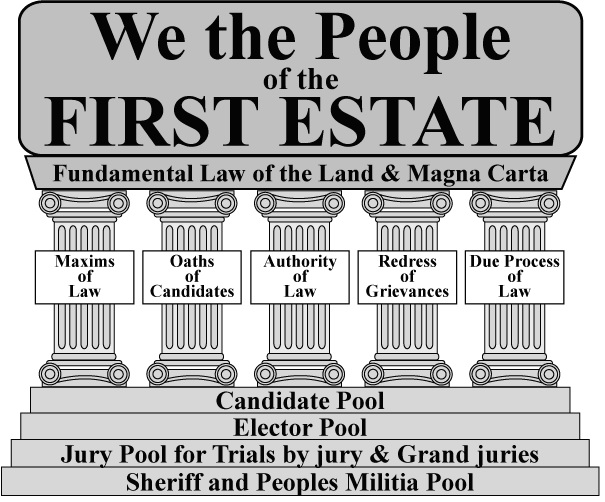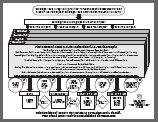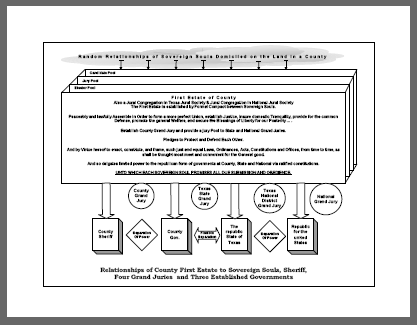
"Custom and usage since time immemorial" is generally what is behind the definition of common law. There is no singular source of the common law as one would expect with statutes made by a legislature.
Having said that, consider also that law follows physical power.
Let's pretend that you reset your brain almost to zero--you have no knowledge but your natural knowledge of good and evil, your natural intelligence, and a language with which to communicate with others. You are in your sovereign capacity, accountable to no higher authority, but acknowledging the sovereignty of others and that you may not diminish the sovereignty of others. You are at peace.
Along comes another being like you who causes you pain for which you want fair compensation.
At this point you have a choice: you can do immediate battle, or you can round up other like beings (we suggest 12 of them, a jury) and ask them to join you in battle. If you can get all of them to agree that you have a just cause, then it would be you and them against the accused (you+them=13 against 1).
They, not having been present at the time of the crime, being fair minded, demand that you justify your request (provide the rule and prove your facts).
You make your presentation, and the accused makes his counter-presentation. After the presentations (the trial) the jury retires to cogitate over two questions.
The first question: Is the rule valid? If, in the opinion of the jury your rule is not valid (jury nullification), then they will refuse to join you (a not-guilty verdict). But, if they, in their independent sovereign judgment agree with your rule, then they move on to the second question.
The second question: Did the actions of the accused violate the rule. If, in the opinion of the jury he did not, then they will refuse to join you (a not-guilty verdict). But, if they, in their independent sovereign judgment agree that your rule was violated, then they will join you (a guilty verdict).
If the jury's decision is split, the issue remains unresolved, and a new trial may be needed with a new jury.
If the jury's decision is unanimous, whether "guilty" or "not guilty", the question is decided, and you now have 13 vs. 1. Depending on the verdict, the "1" would be either the accuser or the accused.
Whoever lost the case would be foolish to do physical battle against 13 opponents. Thus, through this process, we bring peace to the realm.
An accuser always has jurisdiction to accuse. The accused always has jurisdiction to defend. And, either one may grant jurisdiction to a jury to intervene.
That is the bare essence of the common law.
Anything more than that is an attempt to "improve" the process. However, so-called "improvements" often are imperfect.
Although there is no singular authoritative source of common law, much has been written over the past thousand years. Many have come to respect the thoughts and opinions of those who preceded them. Having respect does not mean to quit thinking. Education is the process of learning about prior conclusions. Those conclusions are a valuable guide to use to arrive at our own conclusions.
In true common law, there are no obligatory rules or precedents. A common law court (a court of record) has unlimited jurisdiction and is independent of government. All external factors are, at best, advisory, not obligatory.
The founding fathers understood all that. At his 1801 inaugural Thomas Jefferson said, "Sometimes it is said that man cannot be trusted with the government of himself. Can he, then, be trusted with the government of others? Or have we found angels in the form of kings to govern him? Let history answer this question." And he wrote, "I know no safe depository of the ultimate powers of the society but the people themselves: and if we think them not enlightened enough to exercise their control with a wholesome discretion, the remedy is not to take it from them, but to inform their discretion." [Letter, September 28, 1820.]
The self-correcting temporary imperfections of common law were preferrable to the entrenched imperfections of legislated written laws. That is why they chose the common law as the law superior to statutes and all other forms law. They expressed that choice through the Constitution's 7th Amendment which essentially says that no court may second-guess (review) a decision of a jury.
The Fundamental Law of Life, Liberty and Property (including Common Law) is the foundation on which the Constitution is based. As a result, the Constitution requires the USA to never deny the common law its judicial power.***
A statutory or constitutional court (whether it be an appellate or supreme court) may not second guess the judgment of a common law court of record. The Supreme Court of the USA acknowledges the common law as supreme: Ex parte Watkins, 3 Pet., at 202-203. [cited by SCHNECKLOTH v. BUSTAMONTE, 412 U.S. 218, 255 (1973)]
***Our addition
Credit given to 1215.org



 Post a Comment
Post a Comment

